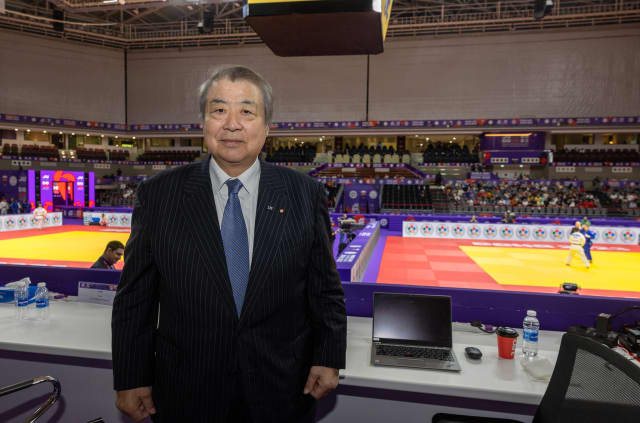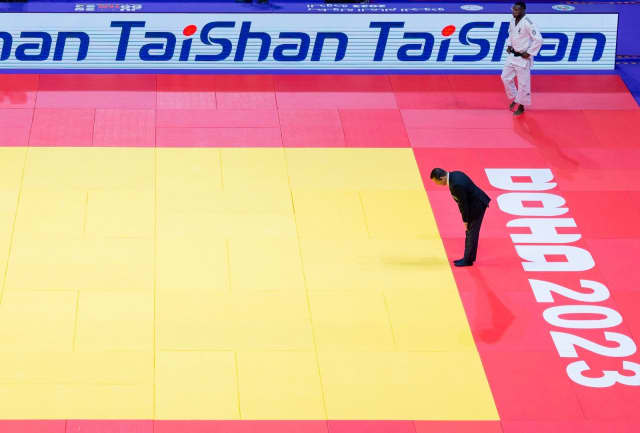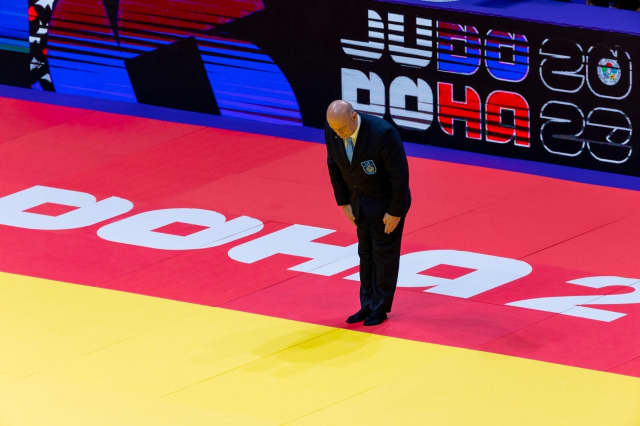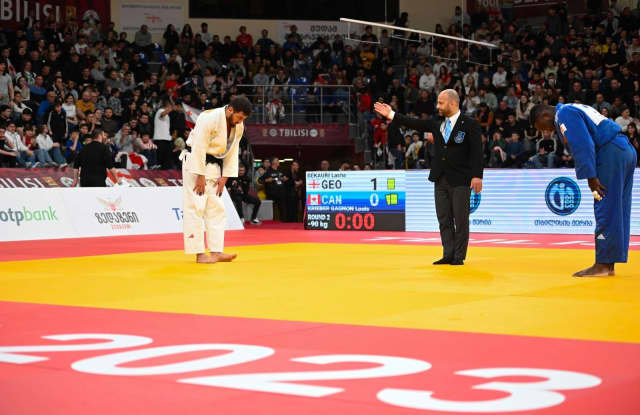Rei!
"We should never forget that judo is about education; judo is education. When we bow at the beginning of a contest or when we enter a dojo, is first of all to show respect. Judo is an educational tool, especially for the youth. When it comes to top level competition like here in Doha, it's a combat sport, where we can throw, choke and apply armlocks. This is not nothing.
Thus, when bowing we show also that we are going to play according to the rules. This is of course valid during competition, but also during practice. Not bowing or not doing it properly is equivalent to saying, 'I don't care about the rules,’ which is not acceptable in our sport.
We don't practise judo just for the sake of practising, we do it to get better, to improve, to evolve. This is true for oneself and for the society in which we are living.
The athletes who are participating in the competitions need to always have in mind that they need to follow the rules and those rules are the ones of fair play and safety. In our ordinary lives we shake hands and in judo we bow.
It doesn't matter the age or the rank. Judo without respect for others, respect for oneself and respect for the environment is not judo. We have to carry that on forever. This is Jigoro Kano's legacy.
Generally speaking, I can say that things have been getting better over recent years. Under the leadership of President Vizer, the judo world understands that we should never forget about the bow, for what it is and what it represents. People tend to forget about it and we must remind them every single time. When I see judoka not bowing properly, I just think that they are still on the way to becoming better and we must help them to achieve that.
If we look deeper into the philosophy that hides behind the gesture, bowing means that you first of all control yourself even before trying to control your opponent. It's an acceptance that you can win or lose and either way you need to be able to control your emotions. This is why we have to be really careful not to let joy explode too much, or sadness. In today's modern world, this is more important than ever.
I am very pleased with the fact that the referees are setting the example. For them as well it's important. Once they have bowed properly, they are ready to referee and deliver the best judgement. As judo sensei, we also have to lead the way and demonstrate that we all accept the judo spirit.
Judo was invented as a social and educational tool. It means that through the control of oneself, we are able to control our behaviour within society and help everyone to become better citizens. This is the great principle of harmony and co-operation embedded within judo and it is, in other words, the concept or mutual prosperity for self and others."
Rei!




